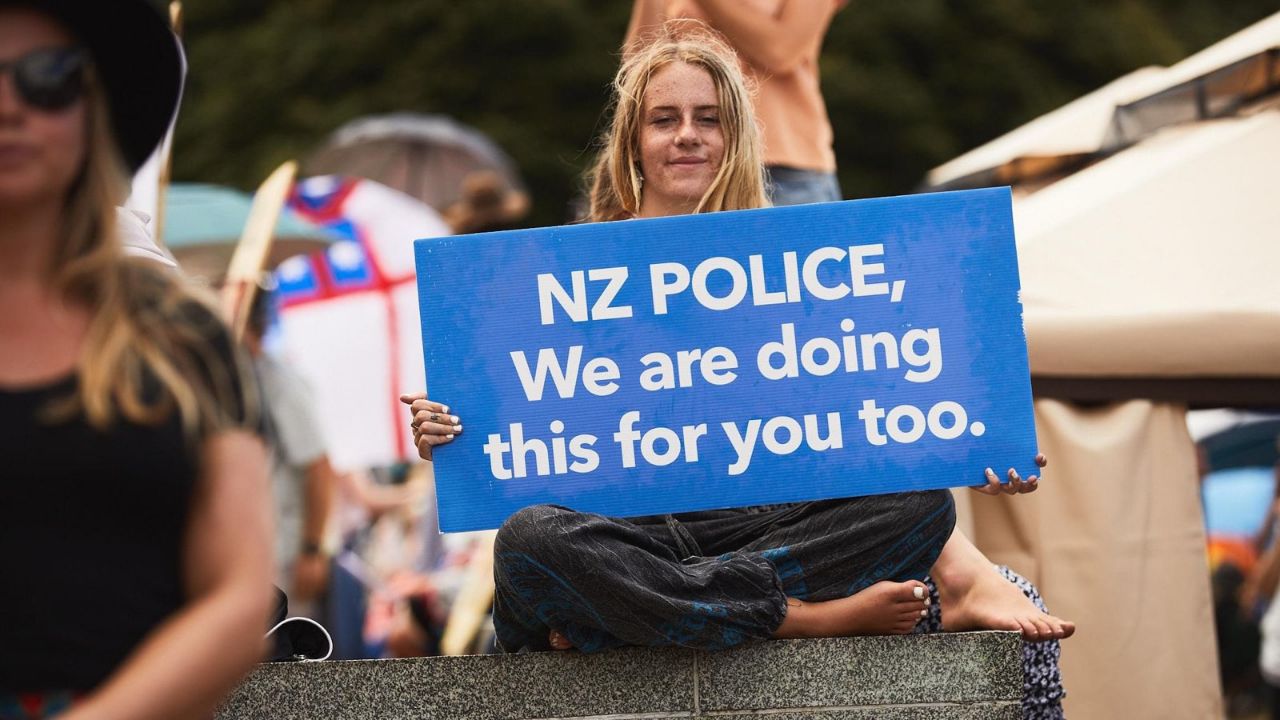New Zealand Doctors Speaking Out With Science
nzdsos.com
In yet another example of government-funded, narrative-adhering reporting, Jamie Morton illustrates what disinformation actually is, while at the same time attempting to point a finger at those he does not agree with, the protesters at parliament.
In his article in the New Zealand Herald, Jamie called on researchers from the Disinformation Project, including Kate Hannah, a principal investigator at Te Punaha Matatini, for comment. Did he call on the groups and individuals at the Parliamentary Protest for comment? Of course not. He may have been afraid that “Covid Disinformation” would continue to out-perform mainstream media as indicated by the Disinformation project. One could argue that the mainstream media message is so fragile that it cannot stand up to the truth or to an alternative viewpoint.

Our Refutation of Jamie’s Disinformation Claim
The essence of the protest was completely ignored in this article and the seeding of assumptions and misrepresentation, pervaded each paragraph.
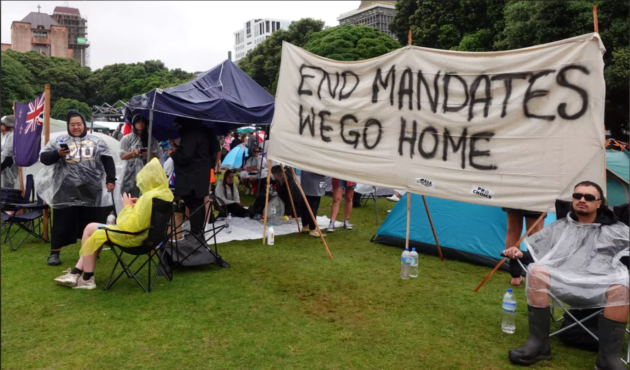
There was no reference to the injuries and unlawful behaviour inflicted upon protesters, by those who were trained, educated and paid to protect citizens and citizens’ rights.
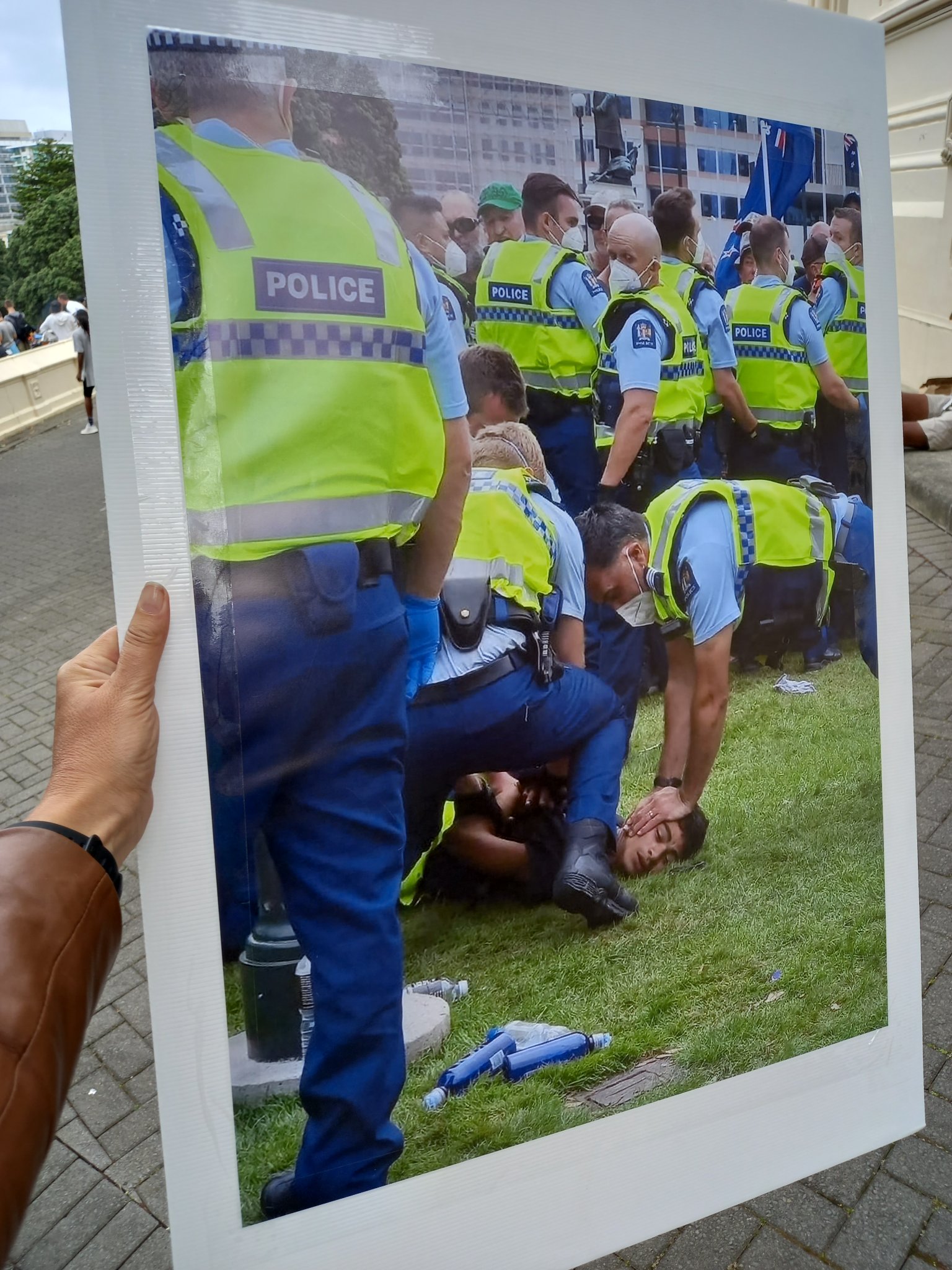
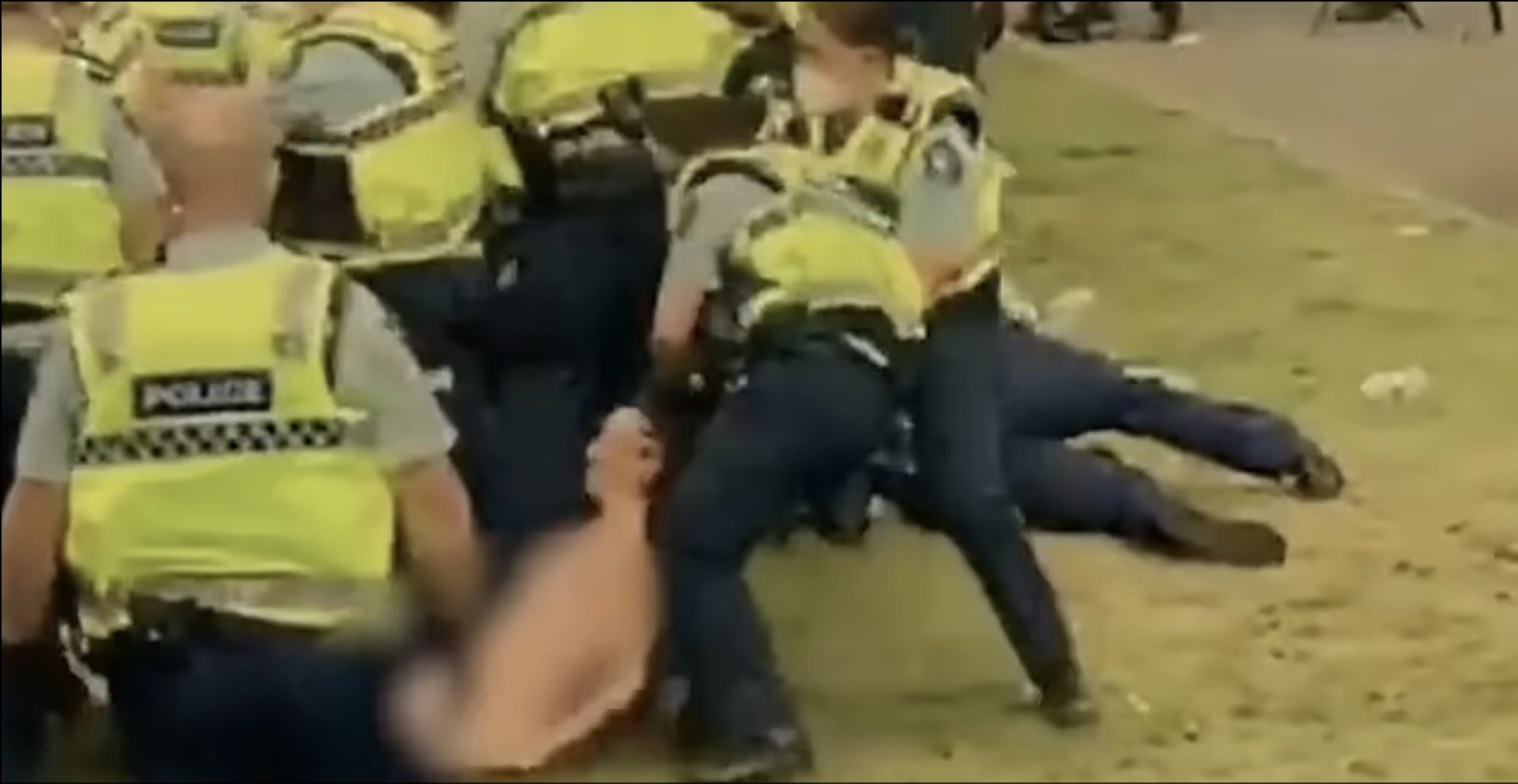
There was no reference to the fact, that the vast majority of legal cases have not resulted in prosecutions against protesters, suggesting that the arrests were unlawful in the first place.
Will there be compensation for their time and expenses attending court, their physical injuries, or the private or public damage to their reputations? Were there not hours of evidence of violent and inappropriate acts by ‘officers,’ captured on livestreams, yet ignored by the authors of the Disinformation Project? Is that not in itself a form of ‘disinformation,’ by the team which was established to scrutinise information?
In addition to maligning and denigrating those present, who did not offend others, commit crimes or break any laws, this article is disturbing, as it does not recognise the personal testimonies and evidence, of so many people who were protesting because of significant losses; loss of employment, loss of their homes and loss of health post ‘vaccination’.
Many were left with profound disabilities and ongoing medical sequelae combined with an absence of due diligence or an effective duty of care by the medical profession, or compensation through ACC. Above all, many suffered loss of their medical and human rights and loss of their friends and family members, either through post ‘vaccination’ deaths or because of the effects of policies and orders, which resulted in conflict and division, a ‘breach of democratic rights,’ ‘non inclusion’ and a lack of ‘social cohesion.’
It is ironic is it not, that Hannah states “The future implications of these recent events were myriad and deeply concerning for our democracy and sense of social cohesion and inclusion”.
Ultimately, those protesting were seeking the right to choose, the right to speak freely, the right to gather or assemble and the right to protest. These are basic tenets of a democratic society and support the right to self-determination.
With respect to medical and human rights, we need not look any further than our NZ Health and Disability Codes, the Bill of Rights Act and the process of Informed Consent, to remind ourselves how significant these pieces of legislation are. We must remain steadfast in respect to ensuring that the consent process for a medical procedure is never eroded, tailored, obtained under duress, or with direct or indirect threats of penalties if one was to decline the procedure. The decision can surely not be made by anyone other than the patient or guardian.
Is it not reasonable and fair, to expect that those obtaining the consents are informed accurately, and adequately and are free to engage in that process, to disclose risks, not just purported or proven benefits? Is it not imperative that they do so, without ‘directives’ from any authority that seeks to tailor that process and in doing so, force health professionals to bury their moral and ethical compasses, or face public and private humiliation and disciplinary action? When there is interference in this process, the result is invalid and unlawful consent, is it not?
When a third party intervenes, whether the Medical Council or Director General of Health, this act strikes at the very heart of the relationship between a doctor and patient. This ultimately reduces trust and credibility in the medical profession now and into the future, placing citizens at risk, without any recourse.
A medical professional takes an Oath and is cognisant of the legalities and ethics of obtaining a valid consent. Professional Codes of Conduct are non-negotiable and the Health and Disability Codes adorn the walls of all health institutions and medical practices. There can be no excuses or justification for the abrogation of these rights, rights which apply to consumers, patients and the health professionals and their families, peers and colleagues. Yet this has become normal in today’s medical practice.
Seeking a consent for a medical procedure includes the recognition, that no human being must be placed in a position, where they have no free choice, regarding taking part in an experiment upon their body. There can be no doubt that the mRNA injections are indeed ‘experimental.’ If non-compliance results in penalties or losses, non-inclusion in society and physical, psychological, spiritual or emotional isolation, then there really is no free choice and the word ‘consent,’ is meaningless.
The article avoids any recognition of these matters and yet speaks of social cohesion and inclusion, which ironically the policies of the government and its leader, have sought to destroy. This is evidenced by the notorious interview, seen all around the world, during which our Prime Minister appeared delighted with the two classes of society, that had been created by the mandates of her government.
The final paragraph in this article, quotes the Prime Minister’s Chief Scientist, Dame Julie Gerrard:
“New Zealand needs to play its part in the global effort to foster social cohesion and to empower our children to learn skills which make the next generation strong critical thinkers who are as resilient as possible to an increasingly polluted online environment.”
I suggest that Dame Gerrard reflect on the articulate testimonies of those present at the protest and the content of their words and their dedicated actions. Were these not strong and critical thinkers? Were these not resilient citizens, who were courageous, selfless and diligent in their efforts to inform themselves and others, by making the time and effort to read the science and to being open to others’ opinions and life experiences. Were these not the very people who demonstrated their care and compassion for others and yet were portrayed as social pariahs and as a ‘river of filth,’ by a member of Parliament?
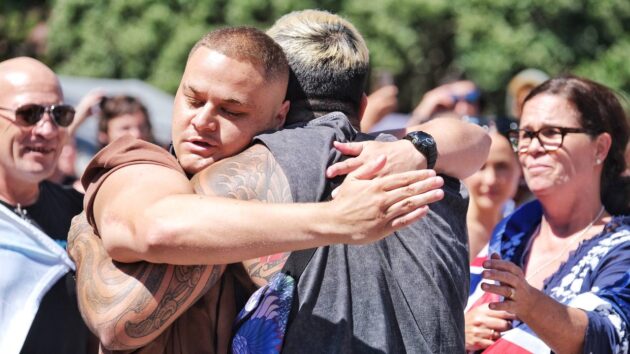
Does this article not attempt to cement into the minds of New Zealanders who may not be discerning or informed, who are content to forego their right to bodily autonomy and are saturated with two years of fear-fueled campaigns and ‘sustained propaganda,’ that those present at the protest were to be deemed a threat to society, propagating disinformation?
The Disinformation Project
Who are these arbiters of Truth, the Disinformation Project? Is such a project not reminiscent of ‘1984’ and indeed Orwellian? No doubt this is a book that will be removed from educational institutions in New Zealand, if not already absent.
Academics are said to be the ‘conscience of society,’ in New Zealand. We have not seen evidence of this, nor do we agree that a group of academics ought to be deemed to be the ‘conscience of society.’ Society is compromised of individuals and individuals have their own consciences. We are not a ‘herd’ of animals after all.
We know that academics include scientists and that scientists can have conflicts of interest and unconscious biases. We posit, that these are the last people that society ought to expect objectivity and truth from. Indeed, their moral and ethical judgements may be impacted, because their research frequently relies on funding, often from the very global entities, companies or manufacturers, who are at the centre of investigations, fraud or false claims, historically, present and emerging.
In conclusion, this quote encapsulates what has been absent over the last two years, but it is never too late to regain what is within our reach.
Science is based on the possibility of objectivity, on the possibility of different people checking out for themselves the observations made by others. Without that possibility, there is no empirical principle of deciding between different arguments and theories.
Jose Padilha
Without the possibility of objectivity and of checking findings for ourselves, science falls victim to the shrill cries of “Disinformation”.

